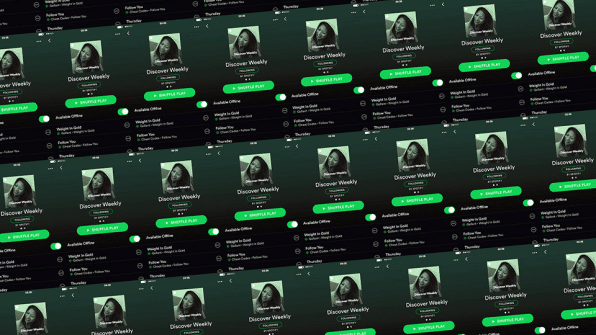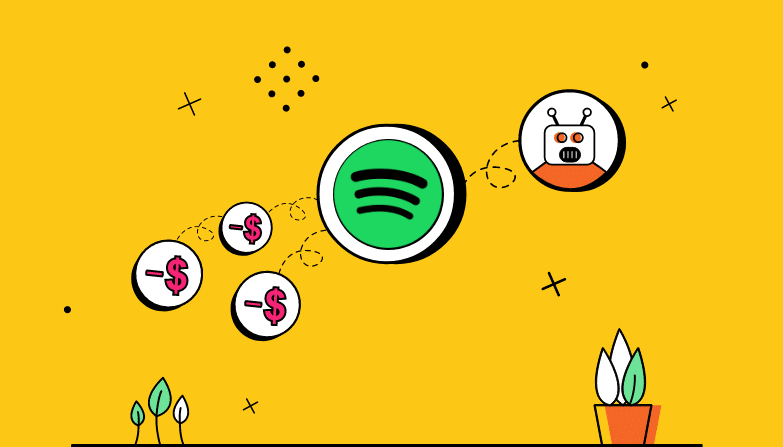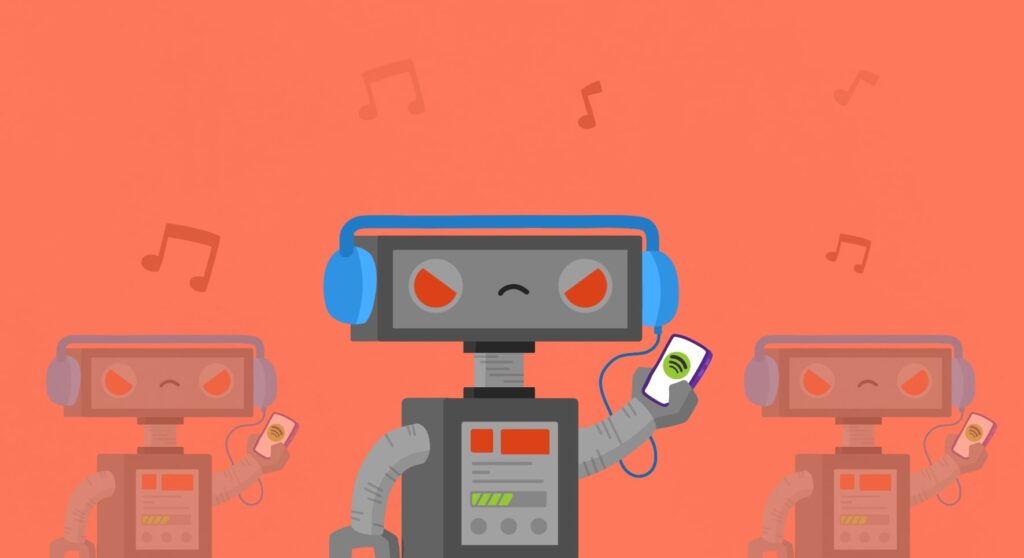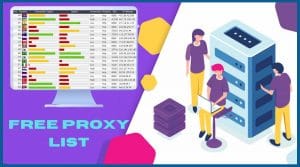Streaming farms are becoming quite popular but only a few artists know about them. If you want to learn about Spotify streaming farms, then the article below will provide you with a gentle introduction into it.
Music streaming has become popular and Spotify is a major player. As an artist, writing, composing, and producing songs is just the first step. The big deal is how often your tracks are being played. Also, to get your songs across to music lovers or listeners, and that’s what music streaming is in for. Before now, loads of songs have been produced by several artists. Yet, due to location limitations and the cost of recording on CDs and DVDs, many music, artists, and record labels are unheard of and unknown. But with the dawn of music streaming via different platforms of which Spotify has paved the way as well, streaming thousands of songs to reach unique listeners within a short time is now possible.
The music reaches wider audiences, listeners listen and learn about new songs and artists generate revenue as royalty. However, because of how effective Spotify streams have become a lift to many unknown artists and record labels to attain popularity and good height, Spotify Stream Farms has emerged as a hack. Now, the question is, what is this Spotify Stream Farms and how does it work? In this article, we will take you on a tour of what you should know about stream farming on Spotify.
What is Spotify Stream Farms

Spotify streaming farm refers to a fraudulent practice where automated systems or bots are used to stream music on Spotify, artificially inflating the play counts of particular tracks. It is a set up of several devices to mimic real listeners and scale up the number of streams. Stream farming on Spotify is simply a fake it-and-make-it process, it’s never a fair game of healthy competition.
The process goes with making illegitimate listeners appear legitimate and manipulating Spotify's algorithm. Thus, put an artist's song on Spotify's top streaming list and eventually place their songs in front of legitimate music enthusiasts. What’s wrong with this is that listeners get to come across songs that do not interest them, and this diminishes the entertaining experience music is meant for. Also, it masks the bright light of an artist streaming fair on Spotify to be seen, known, and heard. According to Rolling Stone magazine, there is $300 million in potential lost revenue from legitimate to illegitimate or illegal streams per year.
How Spotify Stram Farms Work

How Spotify Stream Farms work or how to stream farm on Spotify is not some step-by-step how-to guidelines. Having known that Stream Farms are devices like smartphones and computers that are used to mimic human attributes, Spotify stream farms are the same. Thousands of devices are being automated with bots to keep playing a specific song for like 30 seconds to count as full streams.
What these bots simply do is to go to an artist catalogue and play a song for 30 seconds then to the next one depending on how it is being automated to run and the time to start. Hundreds and thousands of bots can be set on autopilot to for instance late at night at a precise time, when it’s that time all the bots become active and stream songs continuously for like 6 minutes. For those who understand how this works, for an artist song to keep playing for this minute, can simply tell it’s huge pay.
Royalty is generated swiftly and the artist popularity will also be an obvious height. Many artists get into these fake Spotify streams to show credibility but behind the scenes, this is just the job of some automated bots tirelessly streaming specific tracks round the clock mimicking genuine user's behavior, tricking algorithms into believing that a song is immeasurably popular.
This doesn’t only manipulate charts and playlists but also adds up to artists' revenue streams. The strategy employed by streaming farms highlights the sophistication of these operations, making it difficult to discern genuine listeners from automated ones. It will interest you that there are manual and automated Spotify stream farms. There are some other touches of programming like the random delay, that will look like the listener taking a break to do something before listening again among many other things to emulate human behaviors.
There are some causes of stream farms that often arise in China, Vietnam, and other lower economic countries that pay a penny of dollars for people to listen to a specific song manually. The automated stream farms are a set of dedicated servers with hundreds of bots acting as individual virtual machines utilizing all human attributes such as IP address masking and more. it is not difficult like other bot activities; they do not require a person with a sophisticated tech savvy to set up. You can simply set it up if you are attentive, though not like the output expert can pull out. Those behind the scenes triggering the success of these fake Spotify streams are often called Stream Farmers.
Consequences and Risk of Spotify Stream Farms

The consequences of Spotify streaming farms are often jacked up with legal actions. Several artists have fallen victim to streaming farms, with their music artificially driven to the top of Spotify charts. Spotify, however, remains watchful against these malicious practices. What most artists don’t know is that you can’t cheat the system completely 100%. The platform employs sophisticated algorithms and detection mechanisms to identify and counteract fraudulent streaming activities via machines like bots. As an artist, do you really think jeopardizing your reputation and career is worth it? Well, that’s a discussion for another day.
Account suspension is another form of consequence that might arise which can further hurt your reputation. Moreover, artists whose work is hurt by these fraudulent practices face low reviews and financial losses. Supporting artists through genuine engagement and organic growth will ensure that they are rightly recognized and acknowledged for their creativity. Hence, exploring legal and ethical methods to promote music, such as sharing playlists and attending live events, fosters a healthy music network.
Impact of Spotify Stream Farms

The impact of stream farming on Spotify has been negative inclining both on the artists' side and also on Spotify as a system. In light of this issue, it is difficult for music enthusiasts to venture into ethical streaming habits. One thing to know is that music is not what it is known and seen for. It is 90% business and 10% entertainment, so most record labels don’t care how they get out there, so long as revenue is being made and their popularity is on the rise.
Almost everyone in this music industry uses these fake streams, that’s how much the Spotify stream farms have impacted deeply. It is even worse and not noticeable when an artist already famous has millions and billions of fan base. Such artists or record labels can run thousands and billions of bots and outsmart the Spotify algorithm without getting cut up.
In 2018, J. Cole came out to address and speak out on how artist fakes their streams on Spotify and other streaming platform, but what he doesn’t is that even his record may be doing the same. Big record labels bypass this easily, small or upcoming artists and record labels with hundreds of fan base can’t go this lane. They will easily be spotted and taken down. According to the music industry exposed fake streams, top artists are not saints in this fake stream on Spotify.
Effect of Spotify Stream Farms on Upcoming Artists
Spotify is one of the most popular music platforms in the world where users listen to songs and stream podcasts. According to music industry trends statistics, music streaming accounts for 65% of the global recorded music industry revenue. Only 9% of all music will be sold as physical albums in 2022. What people don’t know is that there is a loophole on this platform that generates huge revenue fraudulently for artists. The normal system of Spotify is to pay their artist 70% of their earnings (royalty) and keep 30%. This may sound like lots of revenue being received. But when you look deeply to see how these artists play their games, you do find out that many artists and even record labels boost their popularity using stream farms.
This is against Spotify policy, as such they have strict power to pull down all songs of any artists caught in the act. Whether you are the one involved or you have your fans or stream farmers do it for you. The consequences will not be overlooked. Most stream farm activities destroy the recommendation of an artist's content. As an upcoming artist, this is sure not a line you want to journey on to build your career. The disadvantage of this stream farming is that if most of your streams are bot-like, the Spotify algorithm will unknowingly place your songs in front of listeners who won’t appreciate it or don’t know what you are communicating. By so doing, your engagement rate will diminish, making your music recommendation low. And starting up like that might not even toss you far to see and enjoy the limelight.
FAQs
Q. Is Spotify Stream Farms Illegal?
Yes, Spotify stream farms are illegal. Using stream farms to manipulate the algorithm and be on top of the Spotify chart is against the platform's terms and conditions. Bot listeners inflate the number of streams and this generates good revenue for fake streams, while organic streams take the negative hit. this is often a disadvantage to small labels and upcoming artists who have no income to join the game if they can’t stop these activities by top artists and famous labels. As a result of this, legal consequences, account suspension, and other forms of penalty are strictly fined any artists or record labels caught in the act of stream farming on Spotify.
Q. Why Do Artists and Record Labels Use Spotify Stream Farms?
Artists and record labels use stream farms on Spotify because they want to be on the top of the chart and generate more revenue. Music is not what it seems, it’s mostly about making money rather than entertaining.
Take for instance, if advertising and spending money on getting their songs to the target audience will not give them what botting their streams will, so what are they in for? Listeners don’t have time to listen to all artists' songs and some new artists struggle their way to get their songs to be heard. Several artists have been caught leveraging Spotify stream farms. Also, some stream farmers have attested to helping top artist fake their streams on the platform.
The major artist at the receiving end is those playing fair, hence, don’t be surprised if above 80% of artist engage on this Spotify stream farm. If record labels can be going through such a lane who then are the signed artist not to join if they can make it seems they pave the way organically?
Q. Does Spotify Stream Farms Work?
Yes, even for the fact that some signed artists are being caught, that does not stop the activities of stream farming. What they do is to be more careful, alert, and watchful. Stream farms have helped popular artists get to the top of their game. The thing is, getting away with fake streams is easier for famous artists with huge fan base compared to artists with just a thousand fan bases. These artists can hide behind their millions of fan base and stream with thousands of bots without getting seen knowing they are already known and always on top of the chart.
This harms the system and upcoming artists and small record labels. As such, Spotify stream farms work. Though not advisable for artists who are playing it fair, it will be best for the system to tighten up and fight hard.
Conclusion
Spotify stream farm is not a new word in the music industry. Even though it’s not a legitimate way to get people to listen to artists' songs, it does not stop some artists and record labels not to indulge in using the services of stream farmers or setting it up themselves. In this article, we have done justice to what this Spotify stream farms is, how it works, the consequences involved, and why it is not a good part for an artist to rely on. Do not hesitate to read on, as there are darker side to some streams on Spotify.






